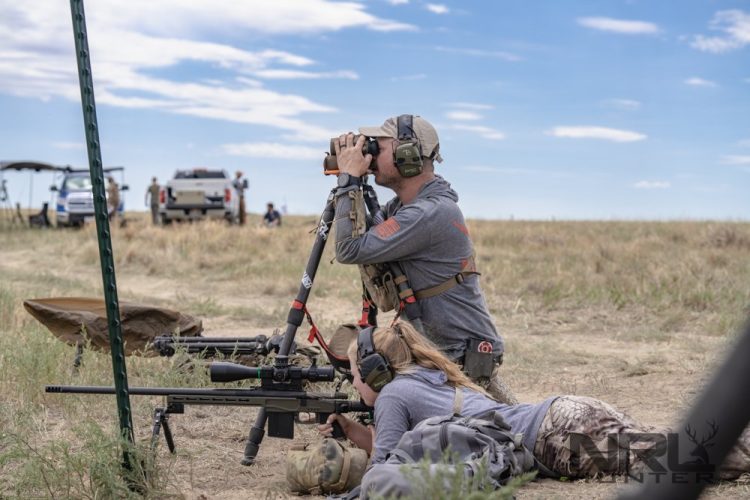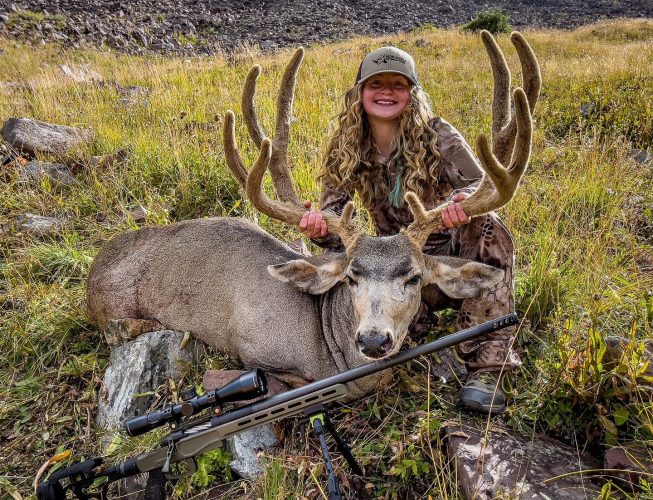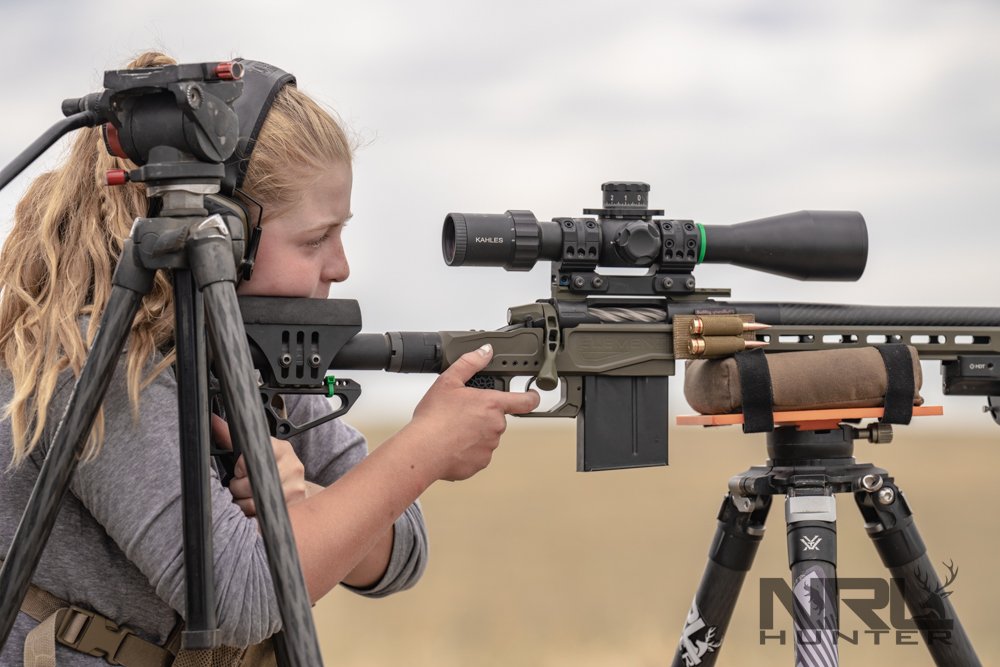Youth Hunter Peyton Bertrand
 This summer, I shot the 2022 Colorado Hunter Challenge. At first, I was very nervous, almost regretting saying yes when my dad asked me if I wanted to compete. I felt that being a youth, there was so much expected out of me than I could handle. Also, this was my first-ever match of any kind. I had almost no experience at shooting competitions, so I thought, “great, my family is coming all the way out here to watch me make a complete fool of myself in front of hundreds of people.” I dreaded the next 2 days, but once I completed my first stage, I felt most of my anxiety go away.
This summer, I shot the 2022 Colorado Hunter Challenge. At first, I was very nervous, almost regretting saying yes when my dad asked me if I wanted to compete. I felt that being a youth, there was so much expected out of me than I could handle. Also, this was my first-ever match of any kind. I had almost no experience at shooting competitions, so I thought, “great, my family is coming all the way out here to watch me make a complete fool of myself in front of hundreds of people.” I dreaded the next 2 days, but once I completed my first stage, I felt most of my anxiety go away.
The stages were fun. They were thought out really well and weren’t impossible. During the match, I wasn’t as nervous as I was previously, but I was still somewhat nervous for fear of timing out or missing a target. My emotions were all over the place. I think I cried 3 times, but looking back, I had a lot of fun! For example, when I timed out on a stage, I got upset, but when I cleared a stage, I felt so proud. The stages were pretty cool.
So, how it went was you walked up to the stage platform, and the actual shooting areas were hidden behind trucks, so you couldn’t cheat. But you went up to a stage number, and on a sign was the course of fire; it showed your target(s) and said how you would be engaging them. The range officer would read the stage to you and ask if you are ready. Your time would start shortly after. The targets were really cool and not boring like regular targets. Most of them were in the shapes of different kinds of dinosaurs. There were even some targets shaped like aliens and yetis, which made it awesome. You were timed 4 minutes to identify, range, and shoot your targets, but for some stages, you would have to change positions. You got two shots on each target. If you hit it the first time, then you received 2 points. If you hit it on the 2nd try, you receive 1 point, and if you miss both shots, you have to move on to the next target. The total number of points you could get on any stage was 8, and the match lasted 2 days, not including Friday, which was check-in and zeroing your rifle. The gear you would need to shoot a match would be a rifle with a bipod, shooting bag, ammo, binoculars, rangefinder, pack, and tripod. Some people had more stuff, but it was not needed.
 I honestly think anyone could benefit from shooting an NRL HUNTER match, even if you didn’t hit a target the entire weekend. It still puts the pressure and the time crunch on you. For instance, I shot this NRL HUNTER challenge, then a little less than 2 months later, I harvested a buck in Colorado, and I think this NRL match really helped me with timing. On my hunt, it was opening morning, and my buck was starting to head towards his bed in some willows. Hence, I had a limited amount of time to shoot him before he disappeared into the thick willows. So it was a little stressful, to say the least. Still, I was better at managing that pressure because I shot in nerve-wracking situations similar to this less than 2 months before.
I honestly think anyone could benefit from shooting an NRL HUNTER match, even if you didn’t hit a target the entire weekend. It still puts the pressure and the time crunch on you. For instance, I shot this NRL HUNTER challenge, then a little less than 2 months later, I harvested a buck in Colorado, and I think this NRL match really helped me with timing. On my hunt, it was opening morning, and my buck was starting to head towards his bed in some willows. Hence, I had a limited amount of time to shoot him before he disappeared into the thick willows. So it was a little stressful, to say the least. Still, I was better at managing that pressure because I shot in nerve-wracking situations similar to this less than 2 months before.
Another thing that the NRL HUNTER match taught me was wind calls. On the first day of the match it got really windy so when I was shooting and my dad told me how much wind to hold, I was doing the exact opposite because I had never shot in conditions like that previously. The R.O.s and other people helped me out, and now I understand wind calls because of them and that match. The last thing that I learned about was barrel heat during the match, as it was really hot. I saw people, including my dad, put cold towels and cold water on the barrels, and I learned why they were trying to keep their barrels cool.
After the match, I was so glad and excited that I shot my first match. Everyone was so nice and kind. People didn’t just want to win; they were helping each other out, especially the new shooters like myself. I am so glad that I shot that match, and I think at least once, everybody should shoot an NRL HUNTER match to improve their skills in the field.
Written by Peyton Bertrand

